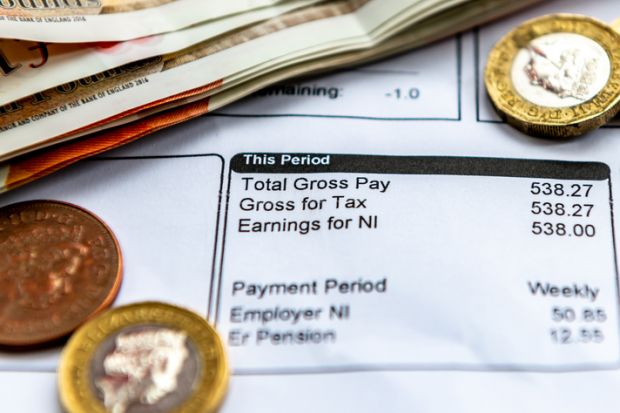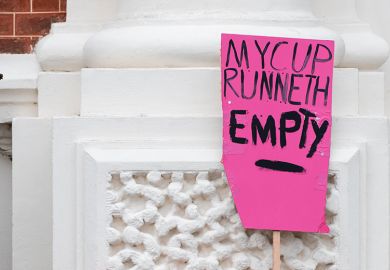Academics who said they lost tens of thousands of pounds in wages after their university deducted full pay for taking part in last year’s marking and assessment boycott have taken their case to tribunal.
A preliminary hearing was held last week to hear two claims brought against Queen Mary University of London in what could become an important case for determining how institutions deal with industrial action.
Queen Mary faced criticism for deducting more than 50 days worth of wages from union members taking part in the action over pay and working conditions. The academics said that marking and assessment only constituted a small part of their role and they had only withdrawn a few hours of work by taking part in the boycott.
Moreover, the academics claim that the work to grade the unmarked assessments was delayed rather than cancelled, as it was completed in September 2023 when the boycott ended.
The university said the boycott had put students’ ability to progress with their studies in “direct jeopardy” and had resulted in a small number of students facing delays to their graduations.
University and College Union (UCU) members have long called on the union to test the legality of wage deductions in court. The case, being led by the co-chair of the UCU Queen Mary branch, Zara Dinnen, is thought to be the first such challenge in the UK.
The claimants have argued that the deductions amounted to a failure to give trade union officials paid time off for carrying out trade union duties. They also argue that in the process of making deductions for action short of a strike, the university compiled a “blacklist“ against employees. They claim that the university went further than necessary in gathering information for the purpose of making pay deductions, including by apparently selecting some boycotters over others in an “arbitrary and discriminatory manner”.
The university has denied the claims and further argues that part of the events occurred outside of the three month time limit conscribed under tribunal rules. The union has said the deductions – which took place on five separate occasions between July to November 2023 – should be seen as “one ongoing and cumulative harm”.
A university spokesperson said it has “continued to put students first” from the outset of industrial action.
“Teaching and assessment are priority contractual activities for university staff, to allow our students to progress. Less than 2 per cent of our staff have taken industrial action, which included boycotting student assessments that put in direct jeopardy our students’ progression. Most regrettably, this also caused a delay in graduation for a small number of our students in English and drama,” they continued.
“During any period of industrial action, we have not, and would not, withhold pay from staff who deliver all their core planned educational activities to our students.”
Both sides now await the outcome of the preliminary hearing, which will decide whether the case can progress to a full tribunal.
Register to continue
Why register?
- Registration is free and only takes a moment
- Once registered, you can read 3 articles a month
- Sign up for our newsletter
Subscribe
Or subscribe for unlimited access to:
- Unlimited access to news, views, insights & reviews
- Digital editions
- Digital access to THE’s university and college rankings analysis
Already registered or a current subscriber?







